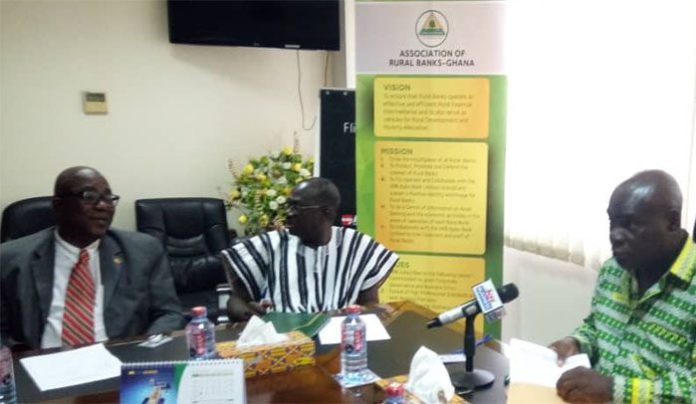
The decision by the government to up Corporate Income Taxes imposed on Rural and Community Banks (RCBs) from eight (8) to 25% is stifling their roles as community development partners.
The national president of the Association of Rural Banks, Mr Daniel Ohene Kweku Owusu, listed the tax hikes as one of the “matters of concern” at a media launch of the association’s Rural Banking Week celebrations.
The situation, according to Mr Owusu, has reduced members’ investments in corporate social responsibility (CSR) programmes.
Aside from the impact on CSR activities, the RCBs president said: “investment in the improvement of their (rural banks) systems and processes, as well as branch network expansion, have reduced drastically”.
According to them, all attempts to get the government to review the increment downwards has yielded no results so far.
Another area of concern, the association noted, is the Bank of Ghana’s limited consultation of its members when it comes to regulatory and policy issues and as pointed out by Mr Owusu, “the lack of implementation challenges, we believe, create policy implementation challenges”.
The association, however, commended the government and the Bank of Ghana for the bold steps they have taken to sanitise the financial system and to help bring back the needed investor confidence.
As part of the Rural Banking Week celebrations, the association’s regional chapters will select months they deem favourable to them for their own celebrations where they will engage in activities such as community sale durbars on rural banking products and services; the extension of susu and microfinance schemes to underserved tapped areas.
There will also be floats, games or talks in churches to create awareness on the benefits of banking services.
To that end, Mr Owusu has allayed the fears of existing and potential clients of RCBs who, for the purpose of the banking sector clean-up, are scared of doing business with them, noting that rural and community banks have proven to be the most reliable.
Ghana has more than 144 active rural banks scattered in all her 16 regions that employ more than 15,000 permanent staff with over 6.5 million customers, more than twice the total number of customers of all the 23 universal combined.
